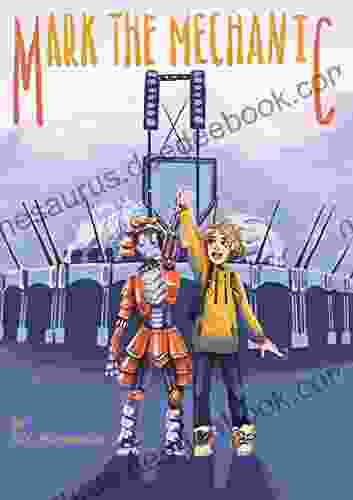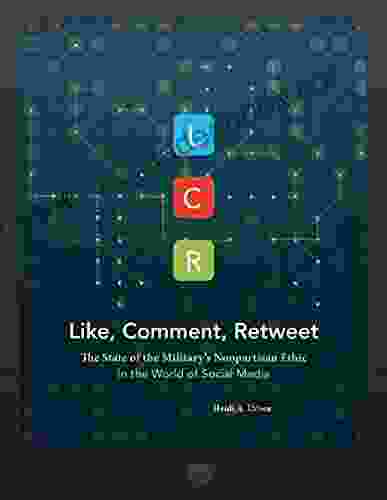How Power Operates In The Flexible Workplace

The flexible workplace is a rapidly growing trend, with more and more people choosing to work from home or in other remote locations. This shift has led to a number of changes in the way that power operates in the workplace.
In traditional workplaces, power was often associated with physical presence and seniority. Employees who were physically present in the office and who had been with the company for a long time were more likely to be seen as powerful. However, in the flexible workplace, physical presence and seniority are less important. Instead, power is more likely to be based on factors such as expertise, knowledge, and influence.
4 out of 5
| Language | : | English |
| File size | : | 1421 KB |
| Text-to-Speech | : | Enabled |
| Screen Reader | : | Supported |
| Enhanced typesetting | : | Enabled |
| Word Wise | : | Enabled |
| Print length | : | 182 pages |
Types of Power
There are different types of power that can be used in the workplace, including:
- Coercive power: This is the power to force someone to do something against their will.
- Reward power: This is the power to give someone something they want in exchange for ng something.
- Legitimate power: This is the power that comes from a person's position or authority.
- Expert power: This is the power that comes from a person's knowledge or skills.
- Referent power: This is the power that comes from a person's charisma or likeability.
The type of power that is most effective in the flexible workplace will depend on the specific situation. However, in general, expert power and referent power are more likely to be effective than coercive power or reward power.
How Power Is Used
Power can be used in a variety of ways, including:
- To influence others: Power can be used to influence others to do what you want.
- To control resources: Power can be used to control resources, such as money, equipment, or information.
- To create change: Power can be used to create change, either within an organization or in the wider world.
The way that power is used in the flexible workplace will depend on the individual and the situation. However, it is important to be aware of how power can be used, so that you can use it effectively to achieve your own goals.
Implications for Employees
The shift to flexible work has a number of implications for employees, including:
- Increased autonomy: Employees who work remotely or in other flexible arrangements typically have more autonomy than employees who work in traditional offices. This can be both a positive and a negative thing. On the one hand, it can give employees more freedom and control over their work. On the other hand, it can also make it more difficult to get support from colleagues and managers.
- Increased responsibility: Employees who work remotely or in other flexible arrangements often have more responsibility than employees who work in traditional offices. This is because they are often responsible for managing their own time and workload.
- Increased need for self-motivation: Employees who work remotely or in other flexible arrangements need to be self-motivated. This is because they do not have the same level of supervision and support as employees who work in traditional offices.
Employees who are able to adapt to the challenges of the flexible workplace can reap a number of benefits, including:
- Greater work-life balance: Employees who work remotely or in other flexible arrangements often have more work-life balance than employees who work in traditional offices. This is because they can set their own hours and work from wherever they want.
- Increased productivity: Employees who work remotely or in other flexible arrangements often have increased productivity. This is because they can work without the distractions of a traditional office environment.
- More job satisfaction: Employees who work remotely or in other flexible arrangements often have more job satisfaction than employees who work in traditional offices. This is because they have more control over their work and their work environment.
Implications for Organizations
The shift to flexible work also has a number of implications for organizations, including:
- Increased need for trust: Organizations that allow employees to work remotely or in other flexible arrangements need to trust their employees to be productive and responsible. This can be a challenge for organizations that are used to managing employees in a traditional office environment.
- Increased need for communication: Organizations that allow employees to work remotely or in other flexible arrangements need to communicate effectively with their employees. This is important to ensure that employees are kept up-to-date on company news and events, and to provide them with the support they need to be successful.
- Increased need for flexibility: Organizations that allow employees to work remotely or in other flexible arrangements need to be flexible in their approach to management. This means being willing to adapt to changes in employee needs and preferences.
Organizations that are able to adapt to the challenges of the flexible workplace can reap a number of benefits, including:
- Increased employee retention: Organizations that allow employees to work remotely or in other flexible arrangements are more likely to retain their employees. This is because employees value the flexibility and autonomy that comes with working remotely.
- Increased productivity: Organizations that allow employees to work remotely or in other flexible arrangements often have increased productivity. This is because employees are more likely to be productive when they are able to work in a way that suits them.
- More innovation: Organizations that allow employees to work remotely or in other flexible arrangements often have more innovation. This is because employees are more likely to be creative and innovative when they are able to work in a way that suits them.
The flexible workplace is a rapidly growing trend, with more and more people choosing to work from home or in other remote locations. This shift has led to a number of changes in the way that power operates in the workplace. In the flexible workplace, power is more likely to be based on factors such as expertise, knowledge, and influence than on physical presence and seniority.
Employees who are able to adapt to the challenges of the flexible workplace can reap a number of benefits, including greater work-life balance, increased productivity, and more job satisfaction. Organizations that are able to adapt to the challenges of the flexible workplace can reap a number of benefits, including increased employee retention, increased productivity, and more innovation.
**Descriptive metadata**
**Title:** How Power Operates in the Flexible Workplace: A Comprehensive Guide
**Description:** This article provides a comprehensive guide to understanding how power operates in the flexible workplace. It explores the different types of power, how they are used, and the implications for employees and organizations.
**Keywords:** * power * flexible workplace * remote work * work-from-home * hybrid work * types of power * use of power * implications for employees * implications for organizations *
**Alt attribute for image:** A woman working on her laptop at home, surrounded by plants and a cozy workspace.
4 out of 5
| Language | : | English |
| File size | : | 1421 KB |
| Text-to-Speech | : | Enabled |
| Screen Reader | : | Supported |
| Enhanced typesetting | : | Enabled |
| Word Wise | : | Enabled |
| Print length | : | 182 pages |
Do you want to contribute by writing guest posts on this blog?
Please contact us and send us a resume of previous articles that you have written.
 Page
Page Chapter
Chapter Story
Story E-book
E-book Magazine
Magazine Sentence
Sentence Bookmark
Bookmark Shelf
Shelf Bibliography
Bibliography Foreword
Foreword Synopsis
Synopsis Annotation
Annotation Footnote
Footnote Manuscript
Manuscript Codex
Codex Library card
Library card Autobiography
Autobiography Reference
Reference Dictionary
Dictionary Thesaurus
Thesaurus Character
Character Resolution
Resolution Librarian
Librarian Catalog
Catalog Borrowing
Borrowing Archives
Archives Periodicals
Periodicals Research
Research Scholarly
Scholarly Journals
Journals Reading Room
Reading Room Special Collections
Special Collections Interlibrary
Interlibrary Literacy
Literacy Study Group
Study Group Thesis
Thesis Awards
Awards Book Club
Book Club Theory
Theory Textbooks
Textbooks Paddy Eger
Paddy Eger Richard Elliott
Richard Elliott Monica R Miller
Monica R Miller Kio Stark
Kio Stark Chuck Wendig
Chuck Wendig Charles M Robinson
Charles M Robinson Yao Ma
Yao Ma Greg Smalley
Greg Smalley Anni Liu
Anni Liu Laura Bradbury
Laura Bradbury Gary Y Okihiro
Gary Y Okihiro Chaconia J Agyenkwah
Chaconia J Agyenkwah Lily Zheng
Lily Zheng Mona Lisa Harding
Mona Lisa Harding Emma Lucy Knowles
Emma Lucy Knowles Joseph Plumb Martin
Joseph Plumb Martin Alex Quigley
Alex Quigley National Geographic Kids
National Geographic Kids Susan Plunket
Susan Plunket Alex Myers
Alex Myers
Light bulbAdvertise smarter! Our strategic ad space ensures maximum exposure. Reserve your spot today!

 Roger TurnerRetracing the Path of Gestalt Therapy: A Journey of Self-Discovery and Growth
Roger TurnerRetracing the Path of Gestalt Therapy: A Journey of Self-Discovery and Growth
 Camden MitchellHarriet Walter on Imogen: Shakespeare's Most Independent and Modern Heroine
Camden MitchellHarriet Walter on Imogen: Shakespeare's Most Independent and Modern Heroine George Bernard ShawFollow ·5.9k
George Bernard ShawFollow ·5.9k Ken FollettFollow ·3.7k
Ken FollettFollow ·3.7k Dominic SimmonsFollow ·5.9k
Dominic SimmonsFollow ·5.9k Owen SimmonsFollow ·10.3k
Owen SimmonsFollow ·10.3k Tim ReedFollow ·18.3k
Tim ReedFollow ·18.3k Derek CookFollow ·6.6k
Derek CookFollow ·6.6k Ethan MitchellFollow ·7.9k
Ethan MitchellFollow ·7.9k Eric HayesFollow ·7.5k
Eric HayesFollow ·7.5k

 Gary Reed
Gary ReedWeb to Web for Beginners: A Comprehensive Guide to...
In today's interconnected world, websites...

 Elliott Carter
Elliott CarterThe Moon Is Down: John Steinbeck's Poignant Portrait of...
In the annals of literature, John...

 Dalton Foster
Dalton FosterMark The Mechanic: The Incredible Story Of A Young...
In the vibrant realm of robotics, where...

 Fred Foster
Fred FosteriPhone 13 Pro Max User Guide: Everything You Need to Know
The iPhone 13 Pro Max...

 Rodney Parker
Rodney ParkerPope John Paul II: The Pocket Giant Who Inspired Millions
Pope John Paul II, or...
4 out of 5
| Language | : | English |
| File size | : | 1421 KB |
| Text-to-Speech | : | Enabled |
| Screen Reader | : | Supported |
| Enhanced typesetting | : | Enabled |
| Word Wise | : | Enabled |
| Print length | : | 182 pages |









